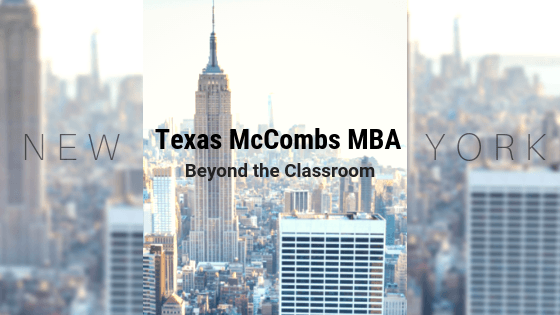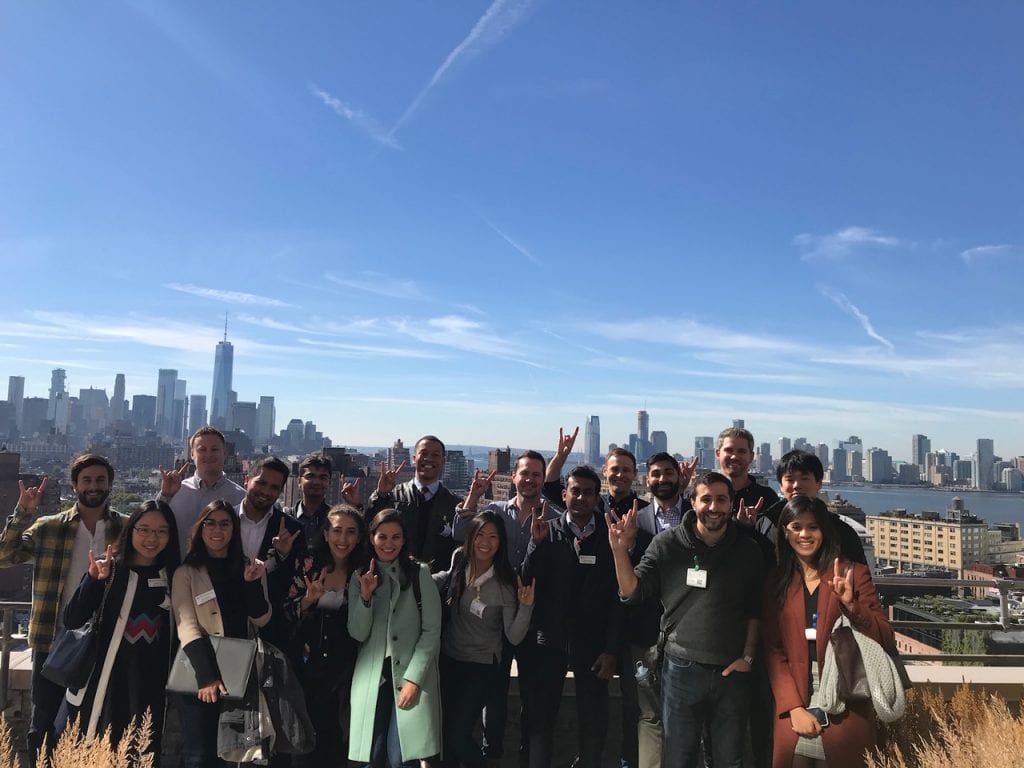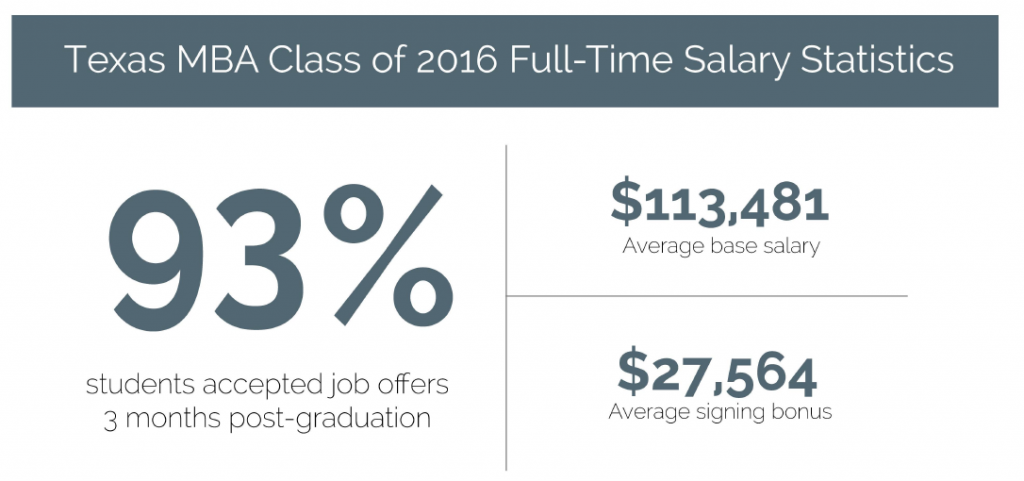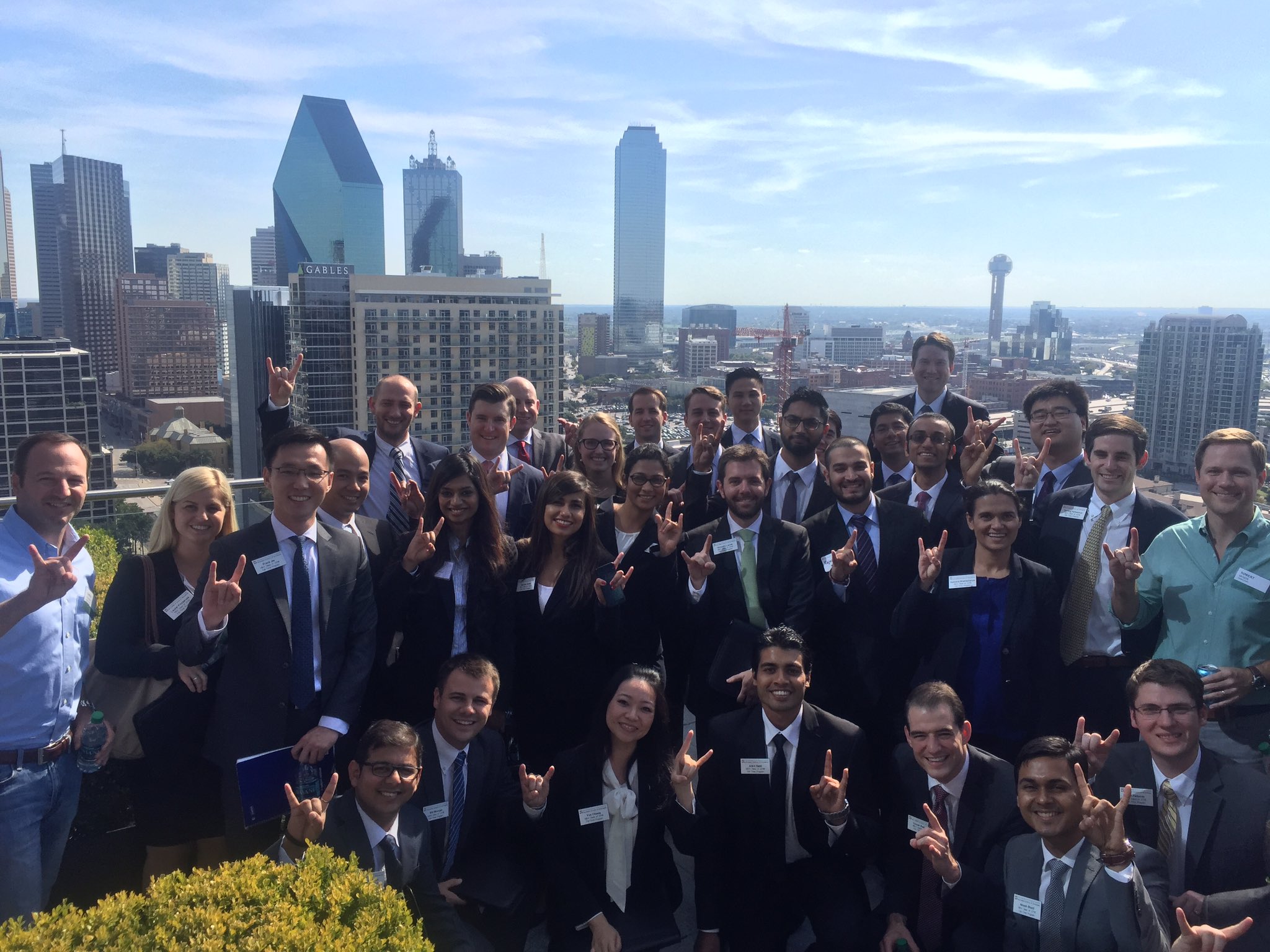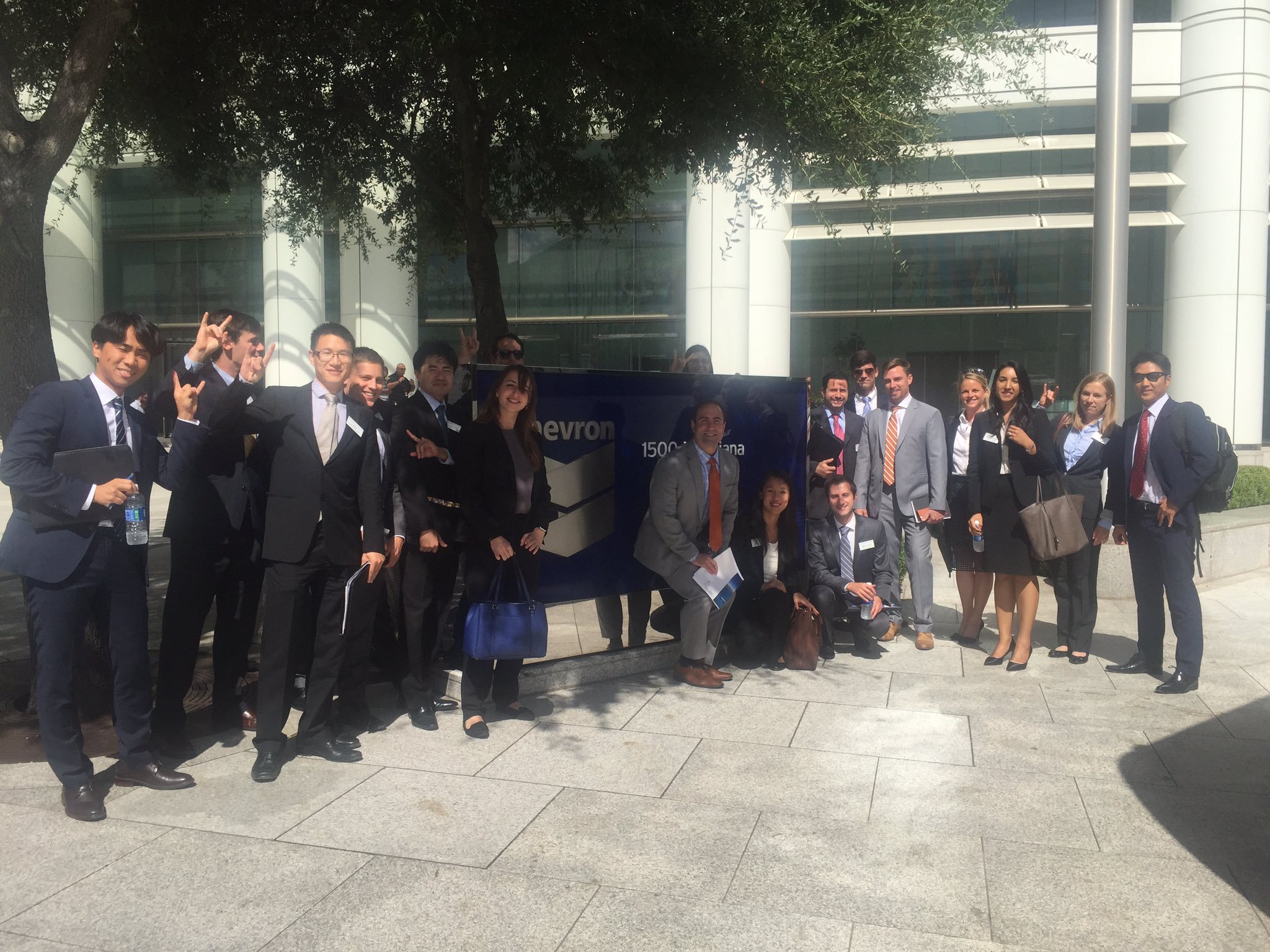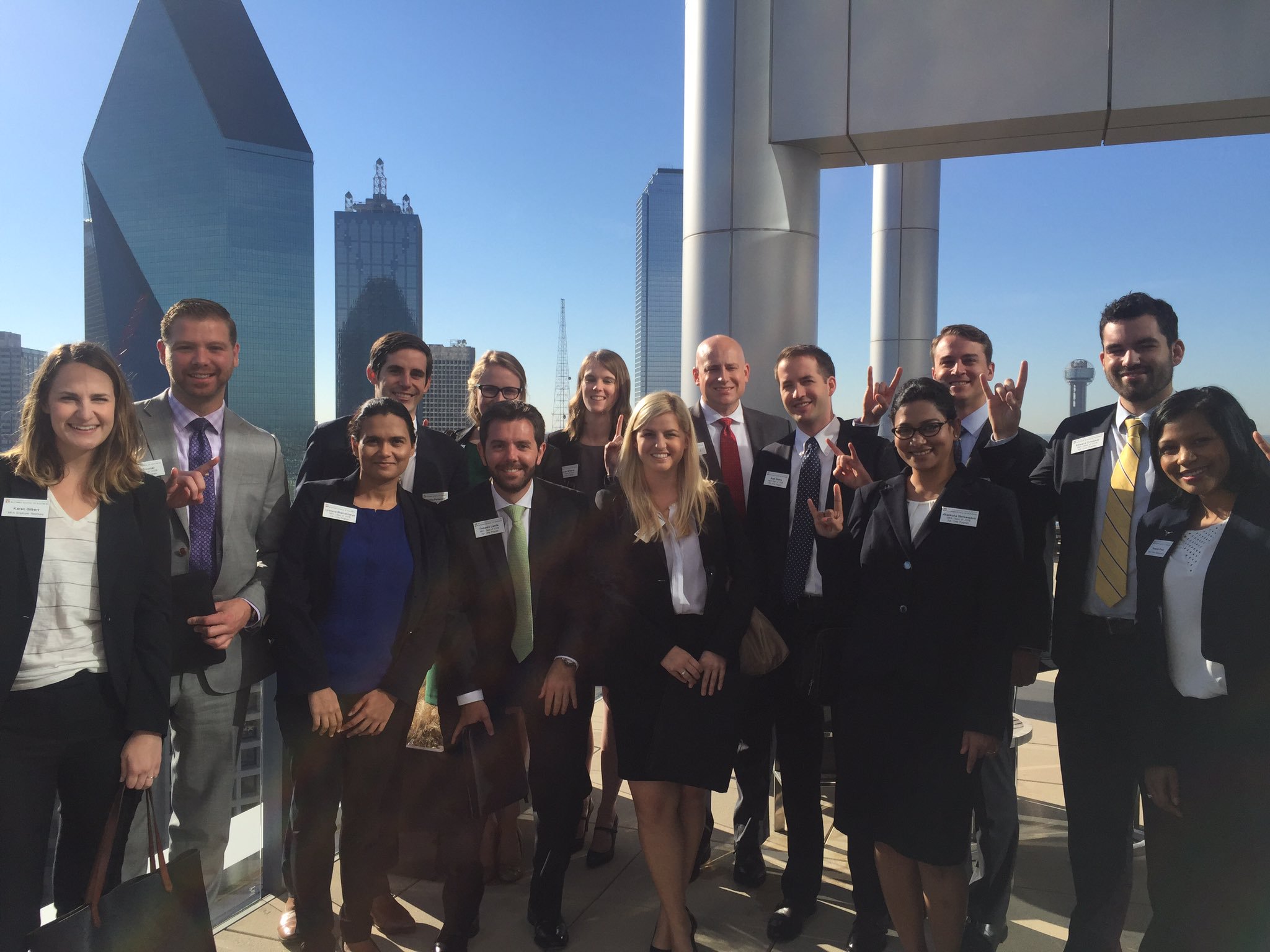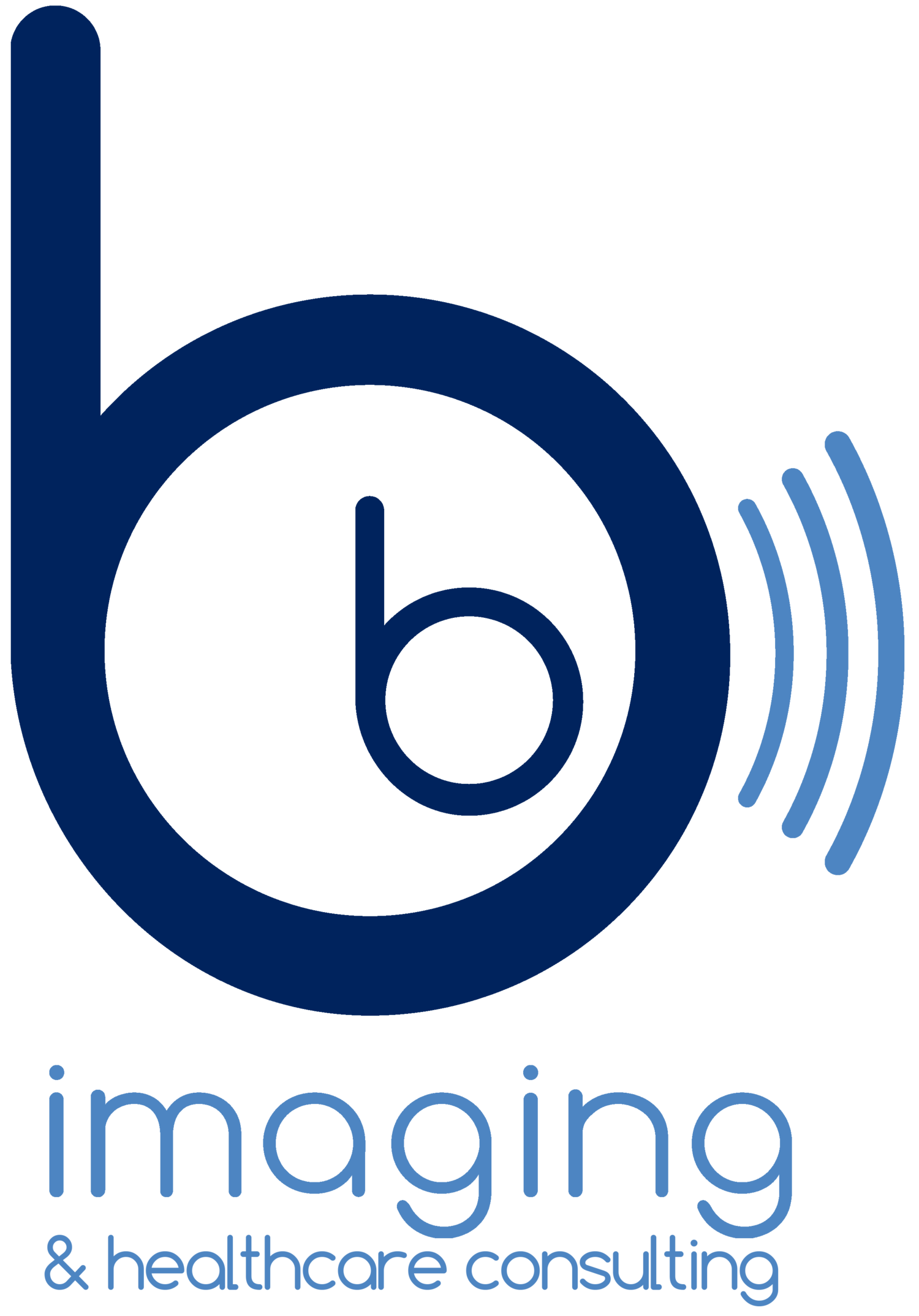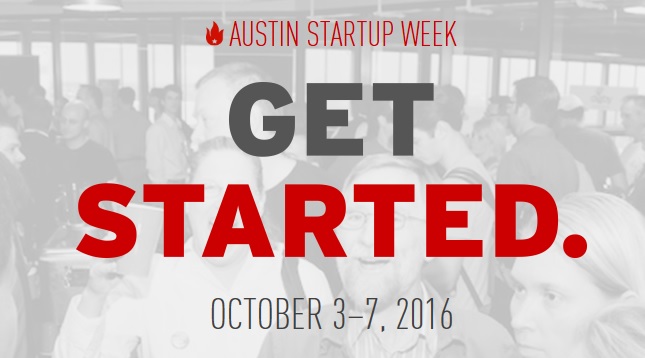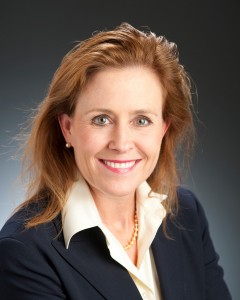Since graduating from the Texas Evening MBA Program back in 2009, Becky Bui has joined the team at Facebook and relocated to Dublin, Ireland to head up their Mobile Gaming team for Europe, the Middle East and Africa. In the pursuit of taking risks to find success, she co-founded FocalPop, an online marketplace, during her time in the MBA program. Now, when she’s not exploring the world with her family, she’s working on developing Facebook’s business with companies such as Social Point, Game Insight and Pretty Simple.
We recently caught up with Becky to see what she’s up to and to learn about her reasons #WhyMcCombs.
What were you doing before you decided to pursue an MBA?
I had spent most of my career in advertising agencies, consulting brands on their marketing and advertising strategies.
Why did you decide to pursue and MBA and why did you choose McCombs?
My career had been going well but I felt I needed a more well-rounded view of the business world in order to better understand my clients’ businesses and to open up additional opportunities in the future. McCombs was an obvious choice for an outstanding education as well as access to a strong MBA alumni network. The Texas Evening MBA Program was especially appealing, because I wanted to continue working full-time in Austin while pursuing my MBA. I applied to other programs, but halted the process as soon as I received early acceptance to McCombs!
What was the most valuable lesson — inside or outside of the classroom — you learned while completing your MBA?
The importance of taking risks. I am naturally pretty risk-averse and, in hindsight, I had not grown as quickly in my career because I had always played it safe and avoided failure. At McCombs, I was able to explore the New Venture Creation program and started a company with my classmates, which was an incredible experience. I also watched my classmates regularly take risks with confidence and have pushed myself to do the same ever since.
How has your McCombs MBA experience helped shape your success?
As mentioned, the New Venture Creation program and Texas Venture Labs helped me to launch a start-up called FocalPop coming out of school. This was an incredible learning experience and helped me take an entrepreneurial approach to my work, both professionally and personally. Having the McCombs MBA on my resume also helped me to move into a leadership role at Facebook, an incredible opportunity that likely would not have happened without the Texas MBA.
What have you been doing since getting your MBA? What is your current position?
 For the majority of my time since getting my MBA I’ve worked in leadership positions within the Global Marketing Solutions group at Facebook. I spent four years leading retail and eCommerce teams in the U.S. and the last year leading the Mobile Gaming team for EMEA (Europe, Middle East, and Africa).
For the majority of my time since getting my MBA I’ve worked in leadership positions within the Global Marketing Solutions group at Facebook. I spent four years leading retail and eCommerce teams in the U.S. and the last year leading the Mobile Gaming team for EMEA (Europe, Middle East, and Africa).
What do you love about your job?
There are many things I love about my job, but if I have to narrow it down to a few:
1. I love working for a company that is having an incredible impact on the world. When I started, Facebook had around 700 million monthly active users and now we have nearly 1.7 billion.
2. I have really enjoyed being on the front-lines of a fundamental shift in marketing, particularly in the mobile space.
3. In the last year I’ve had the opportunity to live abroad, travel to 20+ countries, and truly learned how to conduct business with a global lens.
What do you like to do outside of work?
I enjoy exploring the world with my husband, Ben, and my three-year-old, Berkeley. (And soon a baby boy will join the adventure!) Together, we started the Dublin chapter of Little Helpers, a service organization for families, so we spend time planning service events and volunteering with the kids. I also just launched a podcast in order to highlight stories of successful female leaders. It’s called She’s a Boss Podcast and is available on iTunes and the Stitcher Radio App. Follow the show on Facebook to be informed of new shows or to suggest more amazing women I should feature.
What advice do you have for future Texas MBAs?
Make time to invest in relationships with your professors and classmates. Your network will always be important throughout your career and the Texas MBA Program provides a unique opportunity to form relationships with a diverse group of talented people. Take advantage of it and make the effort to stay connected after your graduate.

